Ever wondered why some websites seem to rank effortlessly for hundreds of keywords while yours struggles to gain traction? The secret often lies in their mastery of seed keywords.
While most SEO professionals chase after long-tail keywords, they miss out on the powerful foundation that seed keywords provide.
But here’s the good news: with the right approach to seed keywords, you can unlock countless ranking opportunities and transform your SEO results.
What are Seed Keywords?
Seed keywords are the foundation of a successful keyword research process.
Think of them as the starting point for all your keyword ideas to grow. These fundamental terms capture the essence of your topic or industry. Rather than lengthy phrases, seed keywords are typically one or two words that are the building blocks for more specific search terms.
For example, if you run a fitness blog, your seed keywords might be “exercise,” “nutrition,” or “workouts.”
The beauty of seed keywords is in how they guide you toward discovering hundreds, even thousands, of related terms your target audience searches for.
When you enter a seed keyword into research tools, you’ll uncover long-tail variations, associated questions, and semantic phrases you can include in your content and new pages that you might never have thought otherwise.
Starting with these broad terms gives you a more precise direction for your content strategy, ensuring you cover all relevant aspects of your niche. This comprehensive approach helps generate pertinent additional keywords and signals to search engines that your site is a valuable resource, allowing your site to establish topical authority quickly.
How to Find Seed Keywords
Creating a comprehensive list of seed keywords is a foundational step for robust keyword research. Of course, discovering the right seed keywords isn't about guesswork but understanding your business and audience.
Below are ways to help you get started in your seed keyword research.
Put Yourself in Your Audience's Shoes
Start by examining your products or services from your customer's perspective. What basic terms would they use to describe what you offer?
For instance, if you run an online fashion boutique, your seed keywords might include “dresses,” “shoes,” or “accessories.” These terms might seem too broad to target directly, but they’re invaluable for discovering the more specific keywords that will drive qualified traffic to your site.
Consider how different customer segments might search differently. A technical audience might use industry jargon, whilst beginners often use more straightforward terms. The key is to capture these variations in your seed keyword list.
Review online forums and communities related to your industry as well. Reddit, in particular, is a goldmine for seed keywords. Also, pay attention to the recurring terms and phrases in these discussions – they often highlight the core topics your audience cares about.
Finally, pay special attention to industry publications and the language in their navigation menus and category pages—these often reflect carefully chosen seed keywords.
Brainstorming Seed Keyword Ideas
The most valuable seed keywords often emerge from collaborative brainstorming sessions. Gather insights from your customer service team, who speak with clients daily, and your sales team, who understand the pain points driving purchases. Their front-line experience often reveals search terms you might otherwise miss.
Don't limit yourself to obvious industry terms. Consider adjacent topics and complementary services. For instance, a wedding photographer might include seed keywords about venues, wedding planning, and even honeymoon destinations—topics that naturally overlap with their core service.
Using Keyword Research Tools
Whilst brainstorming sets the foundation, keyword research tools transform your initial ideas into goldmines of opportunity. But here's where many go wrong: they jump straight to long-tail keywords without properly exploring seed keyword potential.
Start with Google's Keyword Planner to generate seed keyword ideas. Enter your site's URL to search for seed keywords relevant to its content.
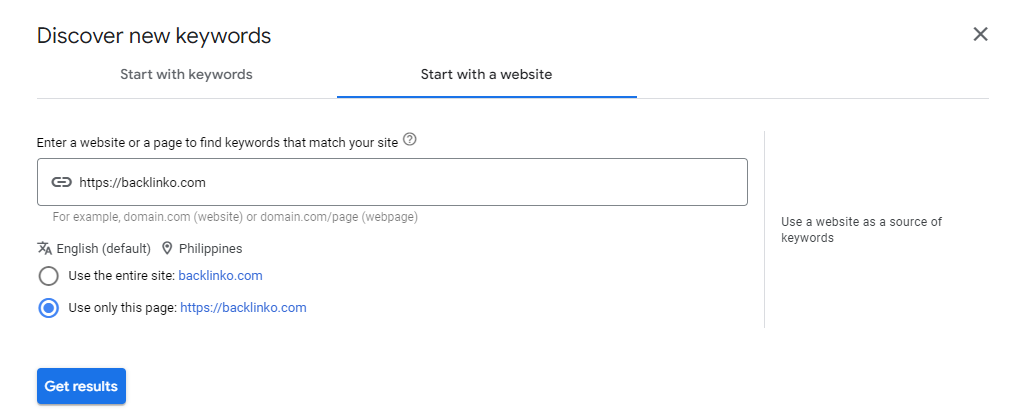
The results page shows you a list of keywords with their respective monthly search volume ranges. Look for search queries composed of two words max - these are your seed keywords.
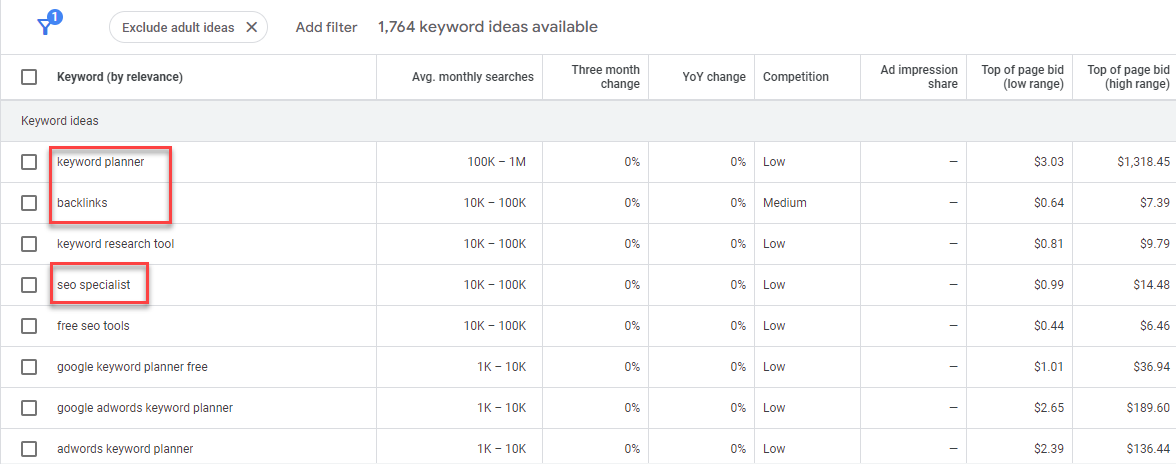
Cross-reference your findings with Google Search Console (GSC) – it often reveals seed keywords you're already ranking for without realising it.
To go to search performance, scroll down the page to see queries from which your site is generating the most clicks and impressions. There's a chance you may see seed keywords here.
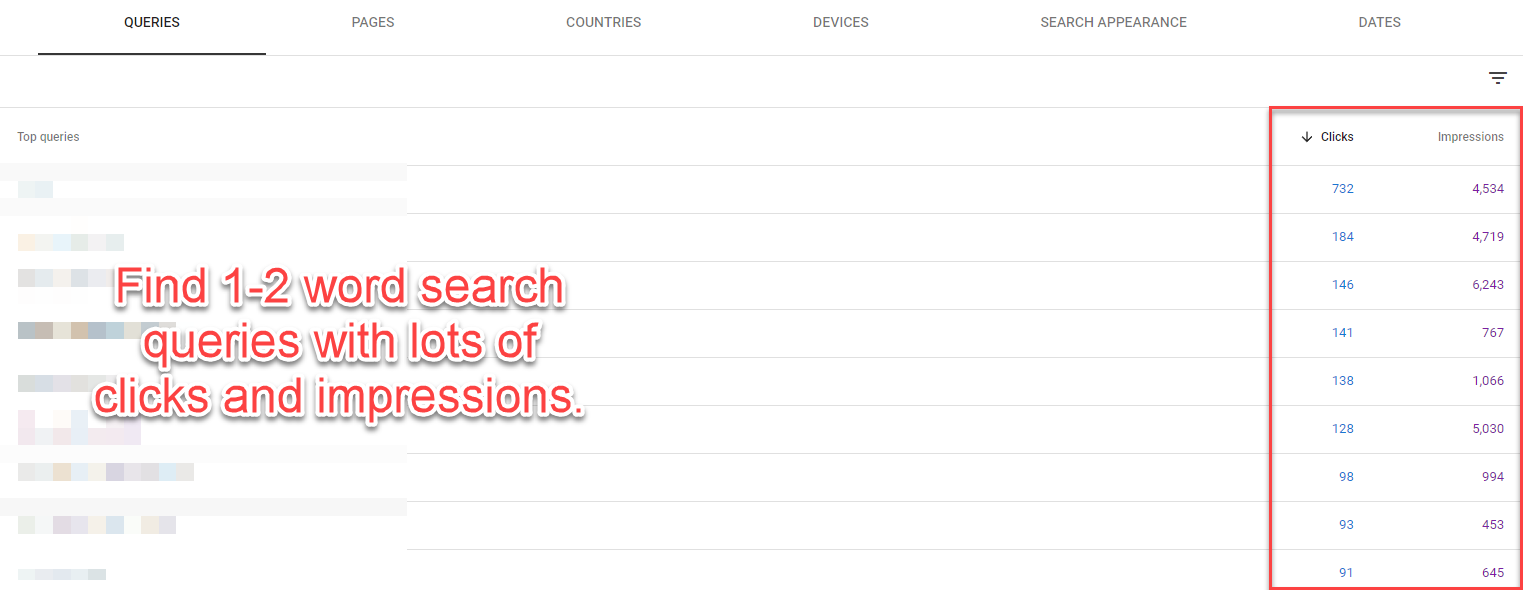
GSC requires that you have their JS code installed on your site for a while now to see historical data. If you haven't done this, you can refer to tools like SE Ranking to uncover seed keywords.
Type in your site URL in the Competitor Analysis search bar to view seed terms that Google Keyword Planner may not have potentially picked up.
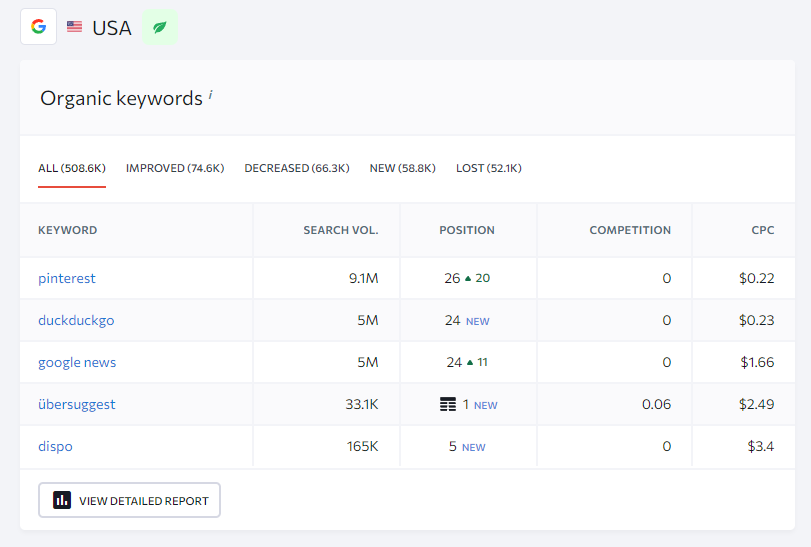
The great thing about these premium SEO tools is that they show you which position on search engine results pages (SERPs) your site ranks for which keyword. The higher its ranking is (1st place being the highest), the more relevant your site is for that seed keyword.
Creating a Content Strategy with Seed Keywords
Once you have a shortlist of potential seed keywords on your site, use them to build comprehensive topic clusters.
Each seed keyword becomes the centre of its content ecosystem, with supporting articles addressing related long-tail keywords.
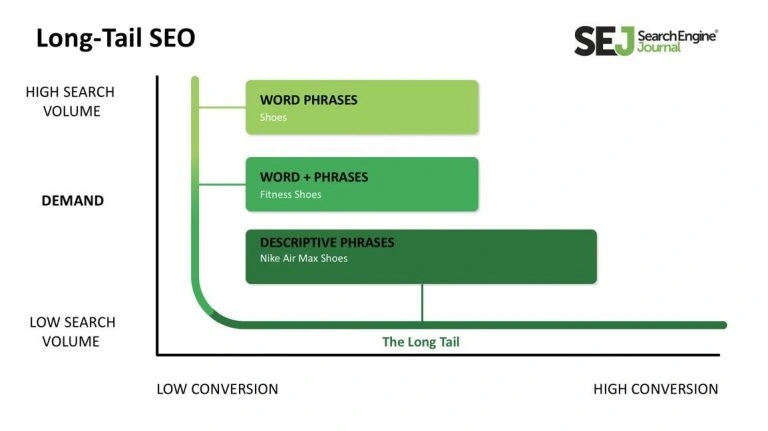
Before creating a cluster, ensure that you have target keywords for each article you'll make. To do this, use a keyword tool like Answer the Public to help you brainstorm for informational keywords from your short-tail keywords.
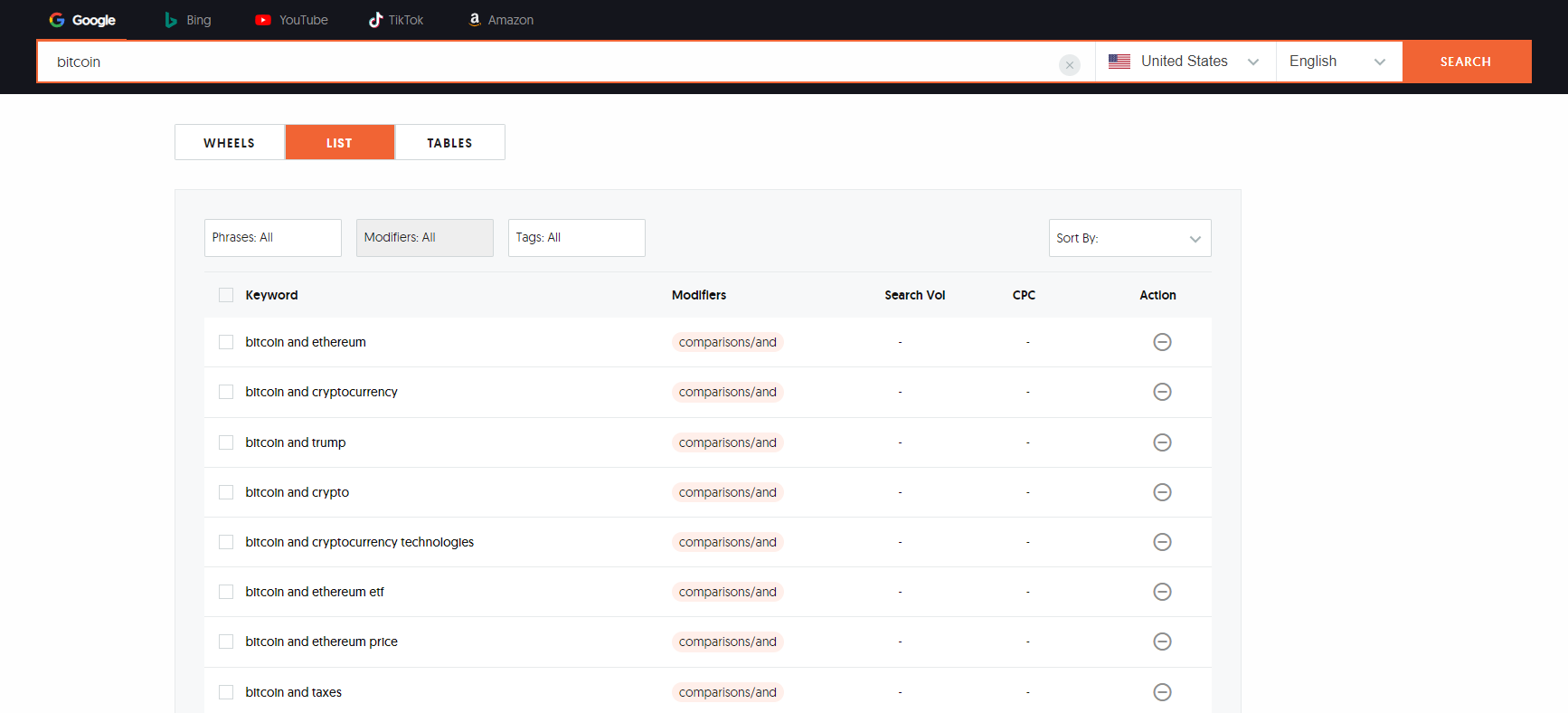
If you're already using SE Ranking, search for the seed keyword in the Keyword Research search bar then look at the Questions and Low Search Volume tabs to help you generate more keyword ideas for your cluster.
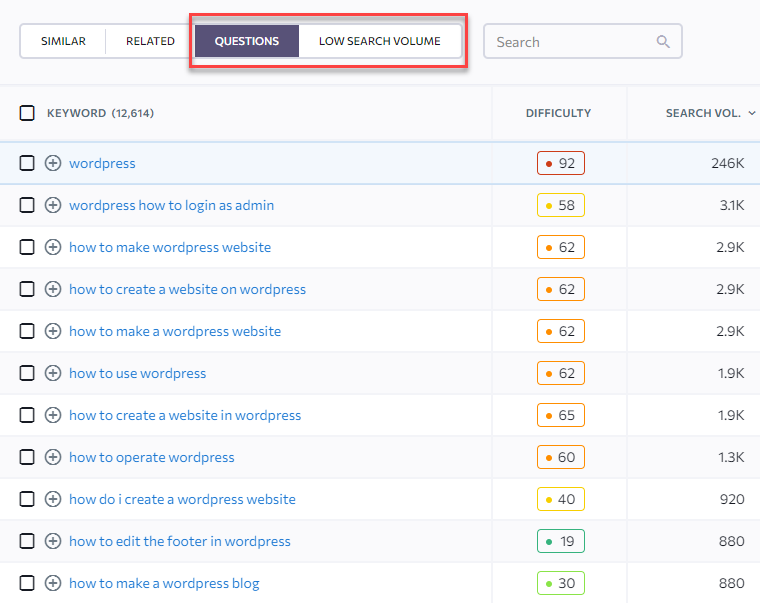
This approach naturally builds topical authority in your niche. When search engines see multiple interlinked pieces of content from a core seed keyword, they're more likely to view your site as an authoritative source. This often leads to better rankings across all related terms, not just your target keywords.
Avoiding the Biggest Mistake in Seed Keyword Research
The biggest pitfall in seed keyword strategy isn't choosing the wrong keywords – it's misunderstanding search intent.
Take "photography," for example. Whilst it might seem like an obvious seed keyword for a photography business, the search results reveal mostly informational content about photography basics. If you're selling photography services, you might want to consider more specific seed keywords like "photographer" or "photo studio" instead.
Thankfully, most keyword research tools like Semrush's Magic Keyword Tool identify the intent of each keyword idea for you.
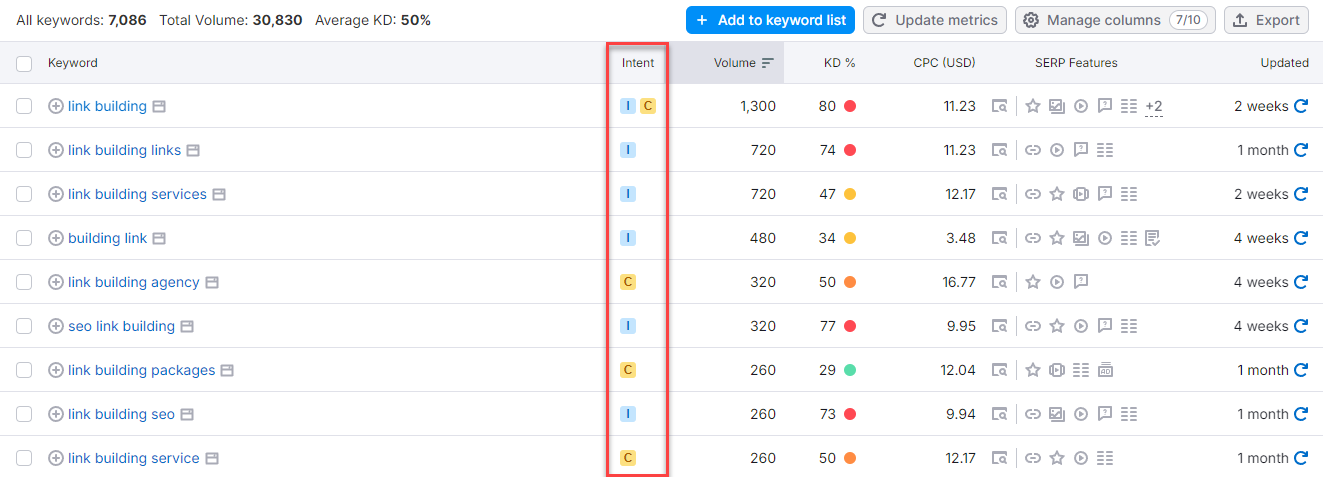
This helps you identify the type of content to create for each keyword, whether it's a landing page, blog post, or a mix of both!
Another error worth mentioning here is treating seed keywords as direct ranking targets. Remember, these terms are your starting point, not your destination. They should inform your content structure and help you discover more specific keywords that better match user intent.
Measuring the Success of Your Seed Keyword Strategy
Success with relevant seed keywords isn't measured by rankings alone. The true measure lies in the growth and diversity of your keyword portfolio.
Monitor how many related terms you rank for that stem from each seed keyword. A successful strategy should steadily increase your keyword footprint over time.
If you haven't installed Google Search Console, now's the best time to do this. It allows you to see how many keywords each of your pages is ranking for on organic search, how high you're ranking on average, and how many clicks and impressions the keyword (or the page in general) is receiving.

Pay attention to user behaviour metrics for content built around your seed keywords. High engagement and low bounce rates often indicate you've chosen seed keywords that genuinely resonate with your audience. These metrics can help refine your strategy and identify which seed keywords deserve more attention.
Thsi is where Google Analytics come into play. It tells you how many people bounce away from your site, how long they've stayed on the page, and what they did while on the page, ex. did they click on any of the links, added the product or service to their cart, etc.
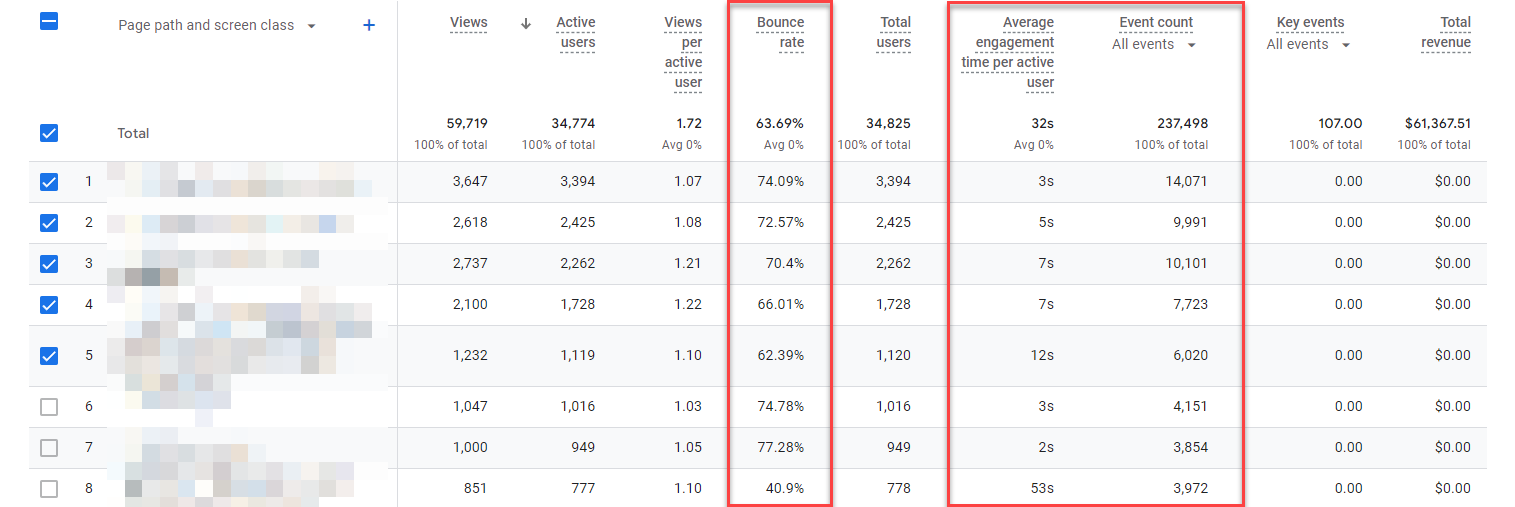
Consult with Charles Floate Training for Your Seed Keyword Strategy
Identifying seed keywords helps uncover a broader range of related keywords that can enhance content optimisation and improve search engine rankings.
These foundational terms help you build topic clusters demonstrating your expertise in search engines. By structuring your content around seed keywords, you create natural opportunities to rank for numerous related terms without falling into the trap of keyword stuffing.
Ready to transform your SEO strategy with the power of seed keywords? At Charles Floate Training, we've helped countless businesses unlock their full SEO potential through strategic keyword planning. Our comprehensive SEO courses and personalised consulting services can help you:
-
Identify the most valuable seed keywords for your niche
-
Build effective content strategies around your core terms
-
Track and measure your keyword performance
-
Scale your organic traffic through proven SEO techniques
Don't let your competitors dominate the search results any longer. Book a consultationwith our team today to learn more about our services and take the first step toward better search visibility.

